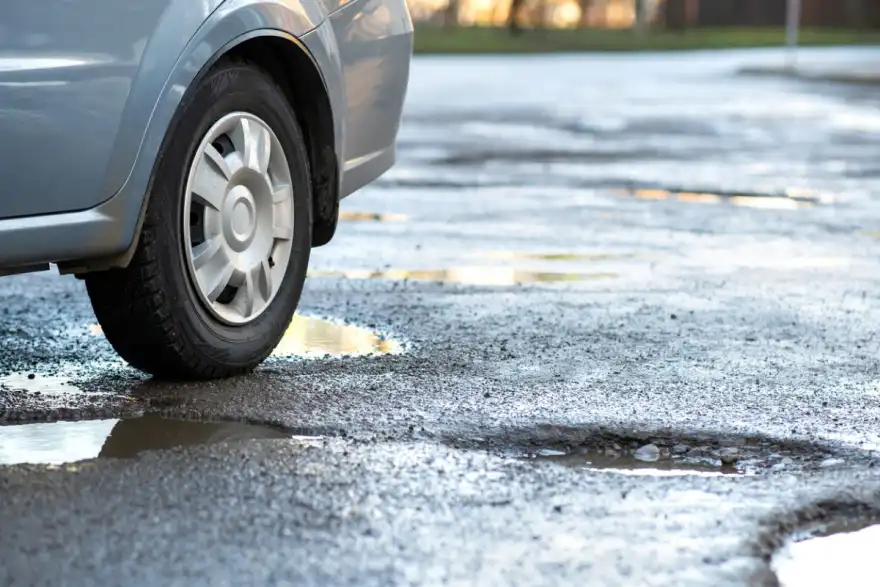
The roads in Britain are currently plagued with issues like cracked tarmac, bent alloy wheels, broken suspensions, punctured tyres, and close calls.
According to the Asphalt Industry Alliance (AIA), the country's highways are nearing a crisis point. Their latest research, the annual Alarm survey, found that local authorities plan to repair 2 million potholes this financial year, up 43% from last year’s 1.4 million, marking the highest annual total since 2015/16.
The AIA report said: “This indicates that local authorities, who have a statutory responsibility to keep local roads safe, don’t have the funds to do so in a cost-effective, proactive way, which would allow them to carry out the appropriate maintenance interventions at the right time.”
So, what should you do if your car gets damaged by a pothole?
Gather Evidence
If a pothole damages your car, collect as much evidence as possible. This might seem excessive, but it can strengthen your case when claiming compensation. Take plenty of photos from various angles, including close-ups and wider shots to show the pothole’s size. Ensure your safety while doing this.
Note the pothole’s location and the time of day you hit it, as poor visibility can increase the likelihood of damage.
Assess the Damage
The most common damage from potholes affects the suspension and tyres. Tyres can deflate or burst, alloy wheels can buckle, and the suspension can sustain significant damage. Take your car to a repair centre for a professional assessment. Obtain a written report and a cost estimate for repairs.
Report the Pothole
You can help others by reporting the pothole to your local authority. Visit their website to fill out a compensation form, including photos of the pothole, the damage, and the mechanic’s report. This not only aids your claim but also alerts authorities to the hazardous pothole.
Claim Through Insurance
If you have comprehensive insurance, you can claim for pothole damage. Be aware of potential impacts on your no-claims bonus and ensure your vehicle isn't unnecessarily written off, which could devalue your car significantly.
Identify Responsibility
Find out who is responsible for the pothole, usually local authorities. Request highway maintenance schedules and incident reports from your local council. Try to do this within 14 days of the incident for the best chance of your claim being supported.
Council’s Response
If your council offers to repair the damage and cover the costs, that’s ideal. If their offer is insufficient, stand firm in your request for fair compensation. If the council rejects your claim, consider seeking legal advice, though this can be time-consuming and expensive.
Taking these steps can help you navigate the process of dealing with pothole damage and increase your chances of receiving appropriate compensation.



